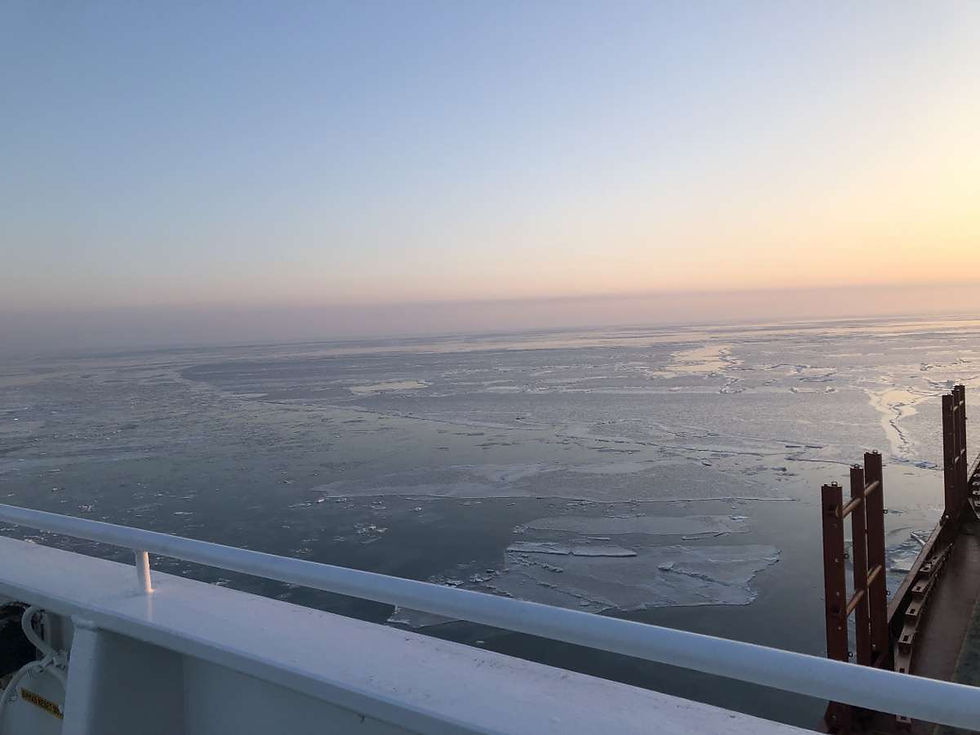Arbitration- Disputed NOR At Mississippi River
- Prokopios Krikris
- Sep 2, 2025
- 3 min read
The vessel charter for this voyage was under an EXXONVOY 90. The Master tendered NOR upon arriving and anchoring at the Southwest Pass pilot station being at the mouth of the Mississippi River. Due to dense fog the vessel was unable to obtain a pilot, and remained at Southwest Pass until 0814 hours on January 6, when the fog lifted and she got underway to pick up the pilot. At 2006 hours that evening, she anchored at the Belle Chase Anchorage for purposes of a U.S. Coast Guard Tank Vessel Exam (“TVE”). The inspection was completed, and the vessel resumed her passage up the river. At 0806 on January 8 the vessel anchored at White Castle Anchorage to await her berth at Baton Rouge. At 0712 hours on January 12 the vessel got underway again, and berthed at Exxon's Baton Rouge facility at 1442 hours that afternoon. The discharge operation was uneventful, and hoses were off at 0320 hours on January 15.
Based on its contention that the vessel was properly tendered at Southwest Pass, Owner invoiced Charterer for demurrage in the amount of $109,441.10. Owner's demurrage calculation took into account 2 days, 10 hours, 2 minutes at one-half the demurrage rate for bad weather (the fog) pursuant to Clause 14(a). Charterer disagreed that the vessel became an arrived ship when she anchored at Southwest Pass, contending that laytime should not commence until six hours after her arrival at the customary waiting place for Baton Rouge, and after the issuance of the Coast Guard TVE Letter. In addition, Charterer objected to Owner's failure to deduct time used to re-anchor the vessel due to strong river currents and time used to lower the gangway upon berthing, as detailed in the SOF.
Decision
Clause 11 stated that the NOR shall be tendered “upon arrival at a customary anchorage or waiting place”. Baton Rouge was only one of several ports on the Mississippi River, and there are many anchorages along the river where vessels customarily anchor, if necessary, to await a berth at ports such as Geismar, New Orleans, Plaquemine, etc., as well as Baton Rouge. White Castle and Belle Chase were two of about 18 such anchorages, White Castle being the closer of the two to Baton Rouge. The panel was persuaded from the evidence that White Castle, not Southwest Pass, some 226 miles away, was the customary waiting place for Baton Rouge.
The SOF indicated that Charterer's berth was occupied when the vessel arrived at Southwest Pass, but both the White Castle and Belle Chase anchorages were available. Moreover, had it not been for the dense fog, it is clear that the vessel could have proceeded to White Castle without delay. Fog, like other bad weather, remains a risk of navigation normally undertaken by shipowners. Therefore, for the purposes of tendering a valid NOR and commencing laytime, the vessel could not be considered an arrived ship when she anchored at Southwest Pass. Hence, the NOR tendered there was invalid.
Although the White Castle anchorage lay some 121 miles upstream of the Belle Chase anchorage, the Charterer apparently accepted tender of the vessel at Belle Chase. However, whether the vessel tendered at Belle Chase or White Castle was academic in this case, because Charterer's berth was occupied at the time, and Clause 14(b)(ii) of the charter provides that all transit time on an inward passage was to be excluded from laytime in any event. The panel found that the Charterer's calculation was correct based on tendering the ship at Belle Chase.
SMA 3582
Editor's note: this can be contrasted with SMA 4062, as cited in the arbitration list here: Notice of Readiness | CharterPartyDisputes
For LMAA Awards, see page 26-28 of my guidebook on laytime Publications | Charter Party Disputes
Arb 12/19: Miss River- NOR at SW pass instead Point Celeste; invalid NOR
Arb 15/21: NOR tendered at Southwest Pass was given prematurely because that was not the closest available anchorage to the berth there(The Agamemnon). The tribunal distinguished this case and upheld the owners’ claim. NOR was valid when tendered at SW pass as the nearest available anchorage when she arrived
In practice, some voyage CP's clearly state that NOR tendered at SW pass to be valid and shifting time up to loading port not to count.


